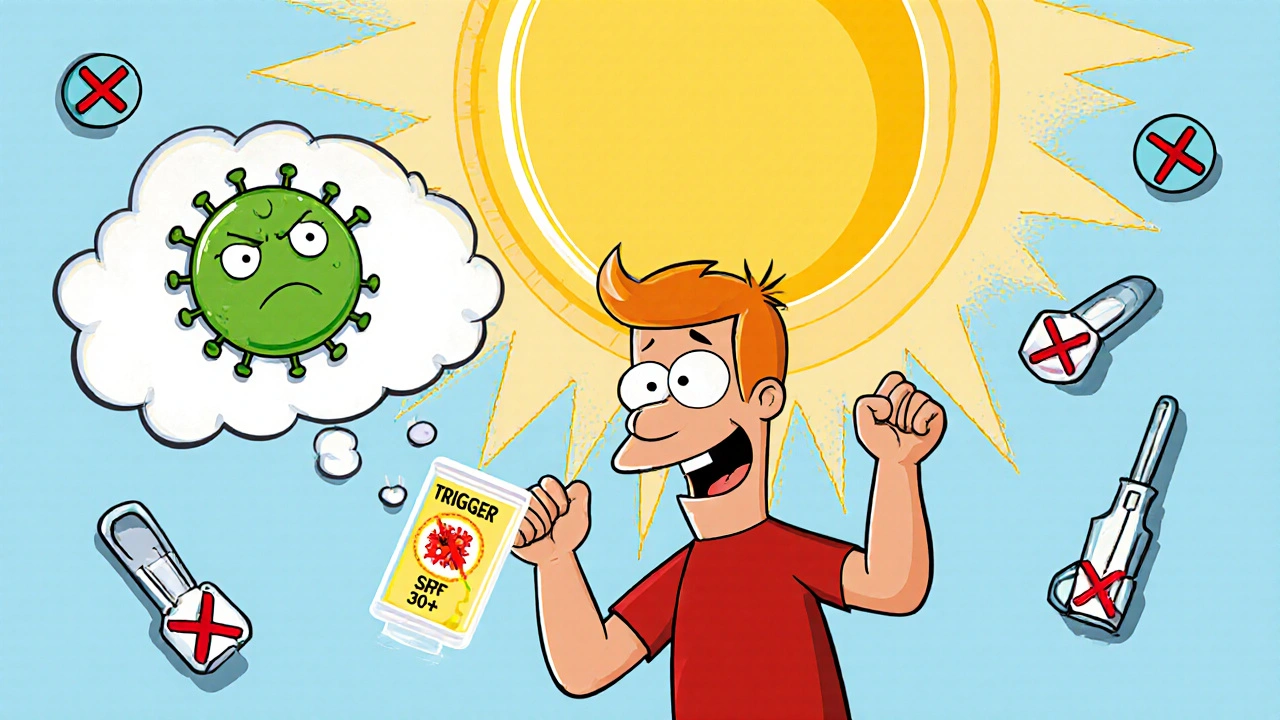Learn how to prevent herpes simplex recurrences with proven antiviral therapy, trigger management, and early treatment. Reduce outbreaks, lower transmission risk, and take back control of your skin health.
Antiviral Therapy for Herpes: What Works, What to Expect
When you're dealing with antiviral therapy for herpes, a medical approach that uses drugs to suppress the herpes simplex virus and reduce symptoms. Also known as herpes suppression therapy, it doesn't cure the virus—but it stops it from taking over your life. Whether you get cold sores around your mouth or genital outbreaks, this treatment helps you take back control.
Most people use one of three antiviral drugs: acyclovir, the original antiviral for herpes, taken multiple times a day, valacyclovir, a faster-acting version that requires fewer daily doses, or famciclovir, another once- or twice-daily option that works just as well. These drugs target the virus directly, blocking its ability to copy itself. They’re most effective when taken at the first sign of tingling, itching, or redness—before the blister even forms. Waiting until the sore is open? You still get benefit, but less of it.
Antiviral therapy for herpes isn’t just about stopping outbreaks. It also cuts your risk of passing the virus to others by up to 50%. That’s why doctors often recommend daily suppressive therapy for people who have more than six outbreaks a year, or for anyone with a partner who doesn’t have herpes. It’s not a magic shield—but it’s the closest thing we have. For some, outbreaks fade over time anyway. For others, the therapy makes the difference between living normally and feeling trapped by fear of the next flare-up.
Side effects? Most people feel nothing. A few report mild headaches or stomach upset. Serious reactions are rare. If you’re on other meds—like kidney drugs or immunosuppressants—talk to your doctor. Herpes doesn’t care about your age, gender, or lifestyle, but your body’s response to the drugs might. That’s why generic versions of these antivirals are so widely used: they work just like the brand names, but cost a fraction. You don’t need to pay more to get the same protection.
There’s no single right way to use antiviral therapy for herpes. Some take pills only during outbreaks. Others take them every day. Some stop after a few years when outbreaks become rare. The choice depends on how often you break out, how much it affects your life, and what your doctor recommends. No one-size-fits-all plan exists—and that’s okay.
Below, you’ll find real-world insights from people who’ve been through this. You’ll see how cost, timing, and drug choice play out in daily life. Some posts break down why generics vary wildly in price. Others explain how to spot fake pills online. A few even cover how antiviral therapy interacts with other conditions—like HIV or weakened immunity. These aren’t theoretical guides. They’re stories from people who’ve learned what works—and what doesn’t—through trial and error.

